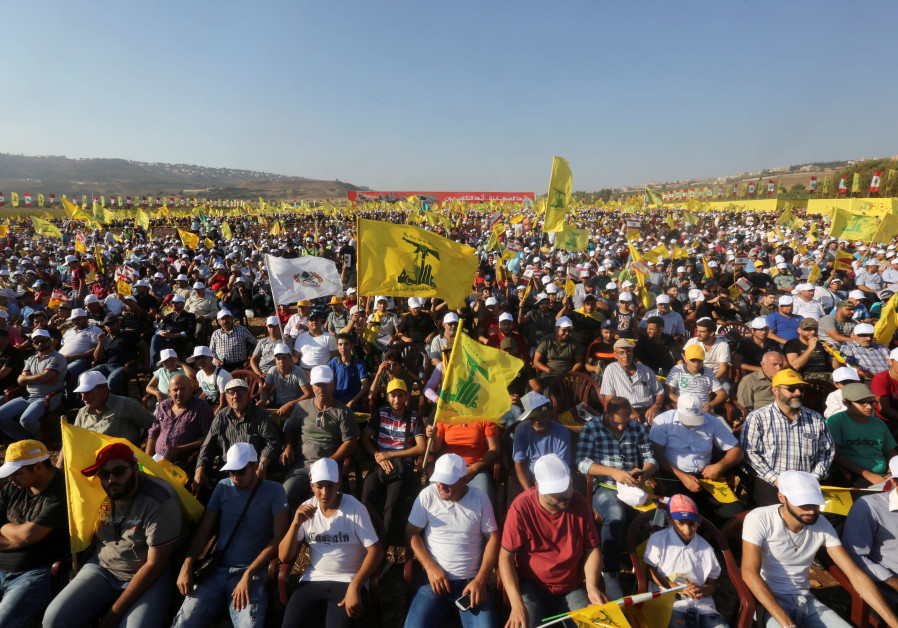The Day After Defeat: From The Islamic State’s Caliphate To Hezollahstan
يوم ما بعد الهزيمة: من دولة الخلافة الإسلامية إلى حزب الله ستان
Jerusalem Post/September 14/17
Islamic State is in dire straits, with reports of low morale, desertion among fighters and less robust leadership.
The day after defeat: From the Islamic State’s caliphate to Hezbollahstan
The expansion of Hezbollah and Shi’a militias in territory once held by Islamic State has left many experts concerned about the day after the end of the Sunni terrorist group.
Speaking to The Jerusalem Post, Aaron Zelin, the Richard Borow Fellow at the Washington Institute for Near East Policy, stated that unlike groups such as Islamic State and al-Qaida, which are not strategic threats to Israel, Hezbollah and Shi’a militias, whose fighters are trained and armed by Iran’s Revolutionary Guard Corps and number in the thousands, are entrenching themselves in Syria, posing a real threat to Israel.
As things stabilize in Iraq, Zelin warned, Iran will send more troops from its militias to Syria, allowing Hezbollah to once again focus on Lebanon and Israel.
In June Hezbollah leader Hassan Nasrallah warned that the next conflict with the group would see fighters from across the Shi’a world participating.
“The Israeli enemy should know that if it launches an attack on Syria or Lebanon, it’s unknown whether the fighting will stay just between Lebanon and Israel, or Syria and Israel,” he said during a speech marking Quds Day.
“I’m not saying countries would intervene directly, but it would open the door for hundreds of thousands of fighters from all around the Arab and Islamic world to participate in this fight – from Iraq, Yemen, Iran, Afghanistan, Pakistan.”
According to Zelin, Iran’s presence in Syria is not only in the form of its militias; rather, it is deeply rooted in Syria’s government and army.
Zelin explained that tactical and operational decisions can be taken by Hezbollah in Beirut, but the strategic decisions will be made in Tehran.
“There is an occupation of Syria that no one is talking about. Iran controls the army and government. Assad is just a figurehead, and while he still has power within his base of support, it is not the same as it was five years ago. Iran is very deeply entrenched in what can be described as the Syrian government.”
Amos Gilead, director of the Institute for Policy and Strategy and chairman of the Herzliya Conference Series at Interdisciplinary Center Herzliya, also warned that Tehran and its proxy groups will likely flood into the territory lost by Islamic State.
“What is worse than Islamic State? It’s the Iranian threat,” said Gilead, adding that “very soon, ‘Hezbollahstan,’ with their 130,000 rockets, will threaten Israel’s Golan Heights.”
Three years after Islamic State blitzkrieged through the Middle East, once controlling nearly half of Syria and large parts of Iraq, the group is reported to have lost 85% of its territory in Syria, including 60% of its de facto capital of Raqqa, and has been largely dispersed across the deserts of Iraq.
According to experts speaking at the International Institute for Counter-Terrorism’s annual conference at IDC Herzliya on Tuesday, Islamic State is in dire straits, with reports of low morale, desertion among fighters and less robust leadership.
Brian Fishman, lead policy manager for counterterrorism at Facebook, said Islamic State “started its clock” in October 2006, when it declared the Islamic State of Iraq. As soon as it made that declaration, it went up against the surge of US troops in Iraq and had to contend with the Sunni awakening, which led to the group losing most of the territory it held at the time.
Fishman warned that while the group may no longer be a territorial entity, the organization is not going away.
While it is unlikely that there will be a mass migration like the world saw in 2014 and 2015, with thousands of foreign fighters flocking to join the group, the die-hard believers will continue to fight for Islamic State, with the aim of rebuilding its power.
Fishman, who is also a fellow at the Combating Terrorism Center at West Point, warned that despite the hit the group took in 2006, it went underground until it came back stronger as Islamic State as we know now.
Nevertheless, the Iranian- run proxy network entrenching itself in Syria and Iraq might have an effect on any attempt by Islamic State to continue its insurgency and its efforts to recover territorial control, Zelin told the Post.
Sha























